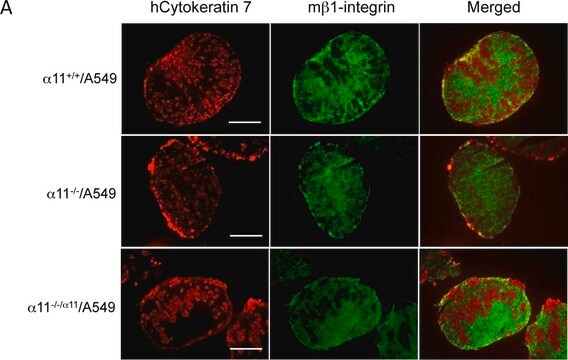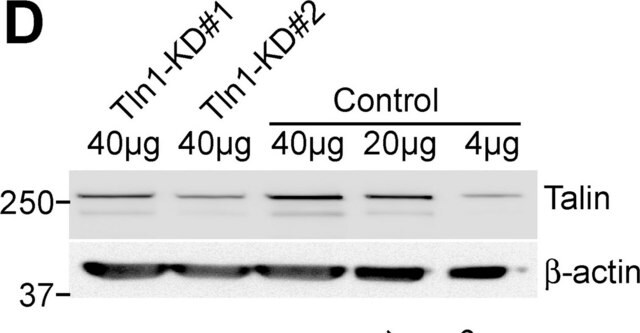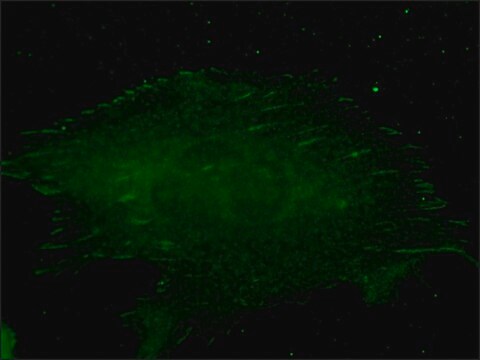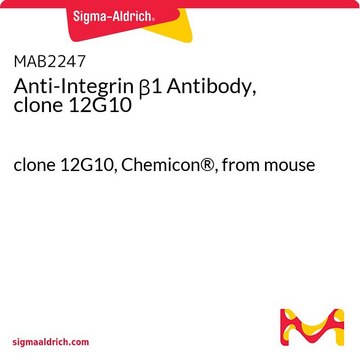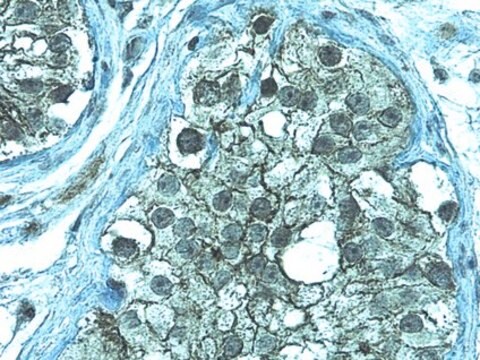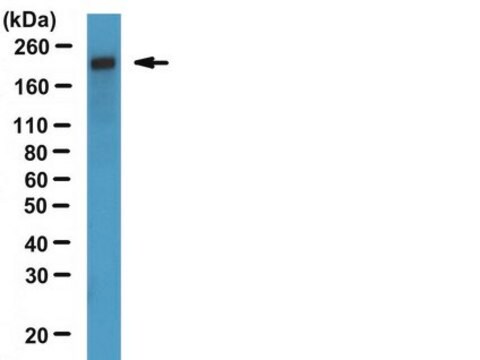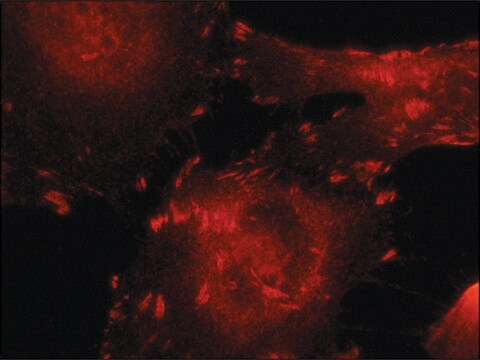MAB1676
Anti-Talin 1 Antibody, NT, a.a. 139-433, clone TA205
clone TA205, Chemicon®, from mouse
Synonym(s):
Anti-ILWEQ, Anti-TLN, Anti-talin-1
About This Item
Recommended Products
biological source
mouse
Quality Level
antibody form
purified antibody
antibody product type
primary antibodies
clone
TA205, monoclonal
species reactivity
rabbit, human
should not react with
mouse, rat
manufacturer/tradename
Chemicon®
technique(s)
immunohistochemistry: suitable
immunoprecipitation (IP): suitable
western blot: suitable
isotype
IgG1
NCBI accession no.
UniProt accession no.
shipped in
wet ice
target post-translational modification
unmodified
Gene Information
human ... TLN1(7094)
Specificity
Immunogen
Application
Immunoprecipitation
Immunofluorescence
Optimal working dilutions must be determined by end user.
Physical form
Storage and Stability
Other Notes
Legal Information
Not finding the right product?
Try our Product Selector Tool.
Storage Class Code
10 - Combustible liquids
WGK
WGK 2
Flash Point(F)
Not applicable
Flash Point(C)
Not applicable
Certificates of Analysis (COA)
Search for Certificates of Analysis (COA) by entering the products Lot/Batch Number. Lot and Batch Numbers can be found on a product’s label following the words ‘Lot’ or ‘Batch’.
Already Own This Product?
Find documentation for the products that you have recently purchased in the Document Library.
Our team of scientists has experience in all areas of research including Life Science, Material Science, Chemical Synthesis, Chromatography, Analytical and many others.
Contact Technical Service